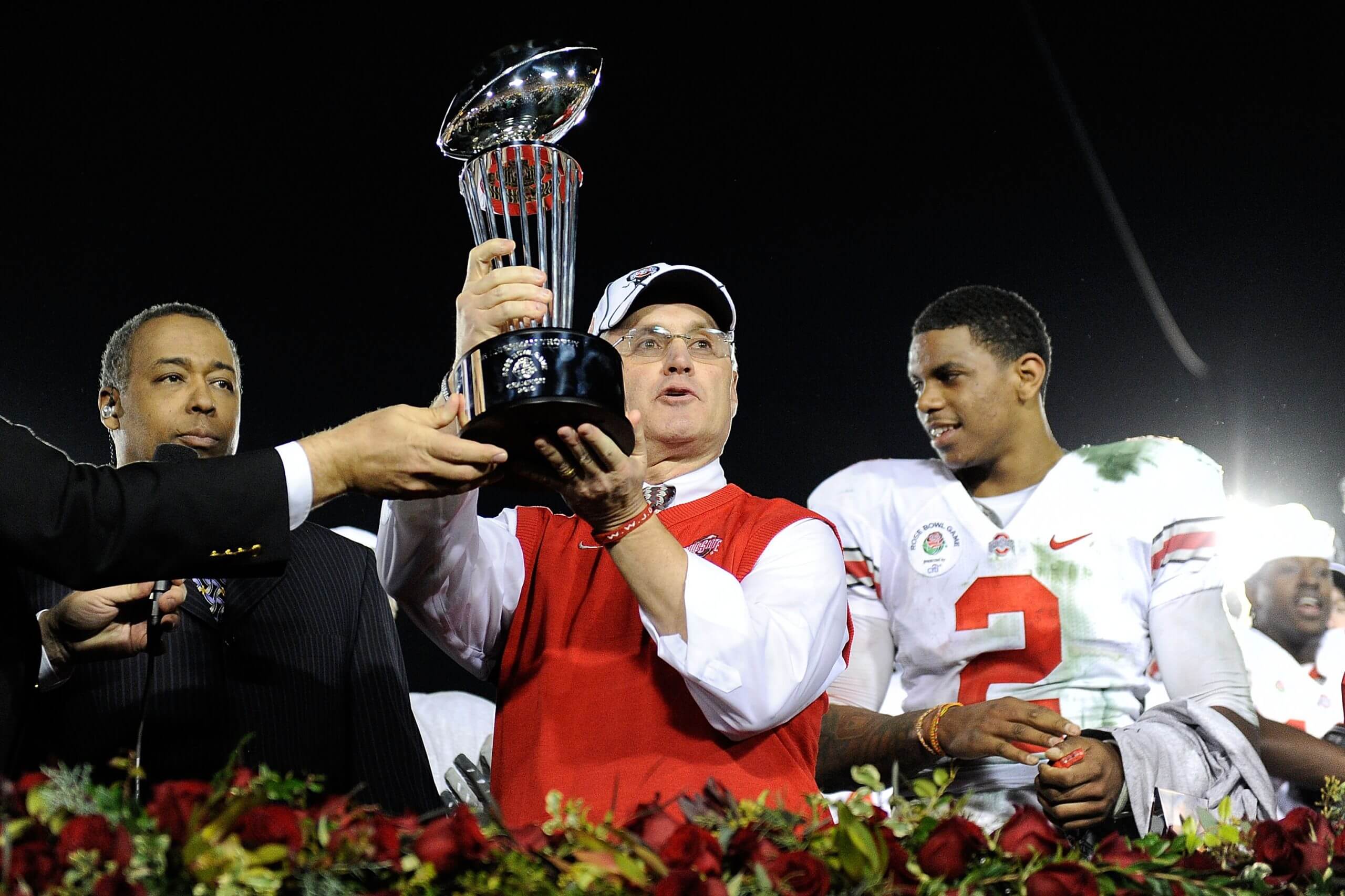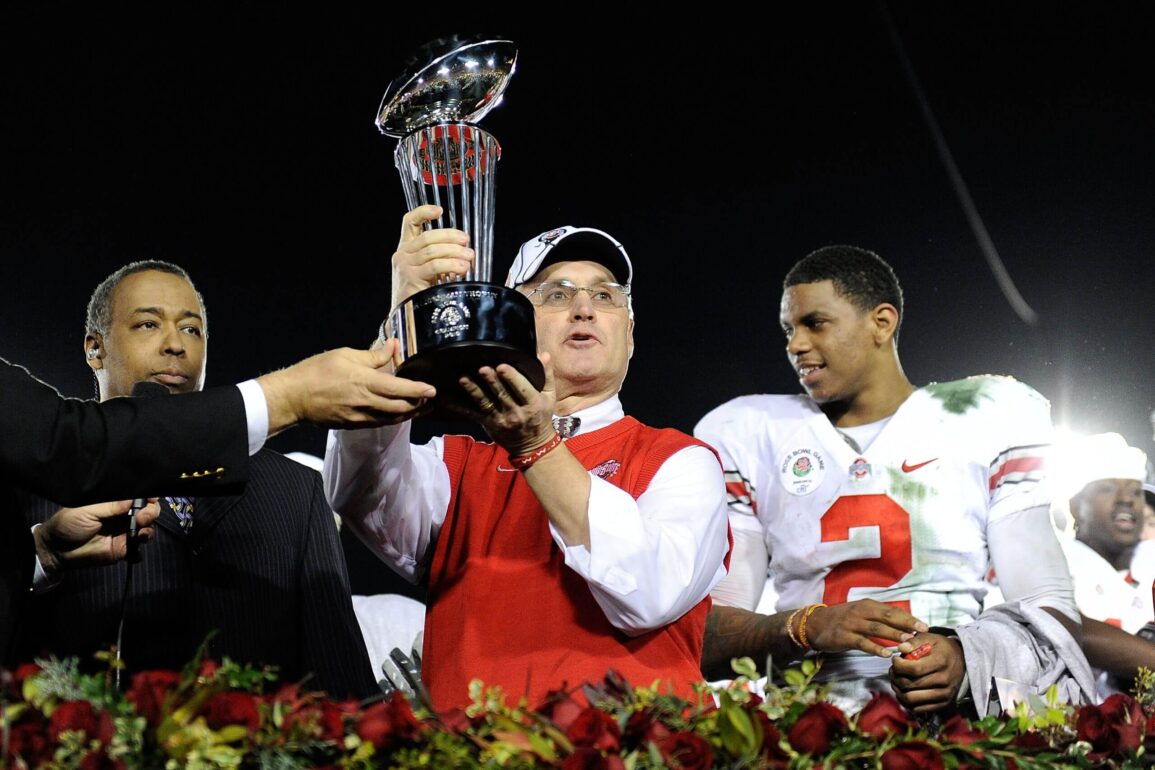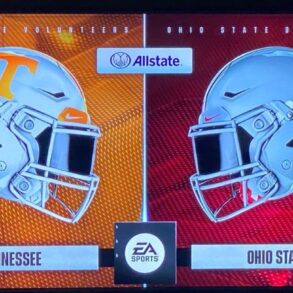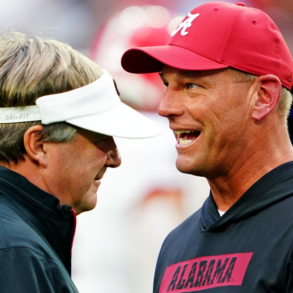If Jim Tressel runs for governor of Ohio, it will come up.
And he might run. Tressel, 72, the former Ohio State football coach whose 2002 Buckeyes won a national championship, whose teams were 9-1 against rival Michigan, and who served as president of Youngstown State University from 2014 to 2023, was easily approved Wednesday to be lieutenant governor to Ohio Gov. Mike DeWine. And in an interview with The Athletic, he stopped well short of ruling out a run to succeed DeWine, a Republican whose second term stretches through 2026.
Advertisement
As he explained his thinking about a gubernatorial run, Tressel recalled a lesson he learned at the University of Akron in 1975, from the first athletic director to be his boss.
“His name was Gordon Larson, and he said, ‘Keep your mind and your rear end in the same place and you’ll have a chance to reach your potential,” Tressel said. “My focus is on earning the trust of the Ohioans, but also of earning the confidence (shown in) me, knowing that I didn’t have as much experience in this arena.”
Tressel is instantly considered a viable candidate for governor, despite no prior political experience, because of his virtually statewide name recognition earned from his 10 enormously successful seasons coaching Ohio State. The national title was nice, but beating Michigan nine times in 10 tries — if you don’t think that matters in the state, well, plan a visit next November and see for yourself.
He also held two positions of prestige after his coaching days were over, first as a vice president at Akron, and then president at Youngstown State — where he had previously won four Division I-AA national championships as football coach before taking the job at Ohio State. Tressel made workforce development a primary focus in the former manufacturing hub of eastern Ohio, where he worked with politicians from both major parties to boost funding and opportunities for job training.
But if he were to enter the Ohio’s Republican primary race for governor and become a candidate for office, opponents would have a clear angle to attack the “trust” Tressel said he must earn from his constituents. The it comes up.
Nearly 14 years ago, Tressel resigned from Ohio State, where he had been head coach since 2001, embroiled in scandal. Today, the ordeal is called “Tattoogate,” in which five football players were suspended for violating NCAA rules by trading things of value, such as Big Ten championship rings, their Buckeyes jerseys and the golden trinkets each player gets after beating Michigan in exchange for free tattoos.
Advertisement
The players were caught because the owner of the tattoo parlor was under a federal investigation for drug trafficking. Tressel was notified of the investigation in an email in April 2010, and as investigations by the FBI and NCAA dragged on, he was eventually accused of intentionally lying to keep the ineligible players (including quarterback Terrelle Pryor, considered one of the best players in the country) on the field for the 2010 season.
In April 2011, one year after Tressel was first notified of his players being swept up in “Tattoogate,” the NCAA said Tressel’s actions in the cover up were “potential major violations.” A month later, Sports Illustrated reported that Tressel’s players were trading memorabilia for tattoos as far back as 2002. Tressel resigned at the end of May, and in July of that year the school vacated all of its wins from the 2010 season and placed itself on two years’ probation.
The NCAA added a third year of probation for the school, barred the Buckeyes from playing in any bowl game in the 2012 season, and issued perhaps the stiffest penalty for Tressel — a five-year “show cause” penalty, which would have required any school that hired him to show why it shouldn’t be penalized for doing so.
The entire world of college sports has changed since then.

Tressel has been a major presence in the state of Ohio for a long time, as both a college football coach and university administrator. (Photo: Kevork Djansezian / Getty)
As of July 2021, athletes can earn millions of dollars for use of their name, image and likeness. Really, it simply means football players like the ones at Ohio State who used to play for Tressel can get paid. There would be no such thing as “Tattoogate” today, and since the scandal mushroomed in Columbus all those years ago, two state universities have hired Tressel for high-level jobs.
But now that he will hold public office, and could, in less than two years, run for the highest elected office in the state, Tressel was asked what he would say about the NCAA violations and his resignation from Ohio State.
Advertisement
“The way our time ended at Ohio State was disappointing, on a lot of levels,” said Tressel. “My number one care and concern was for our student-athletes and then the program itself. We know that the world of college athletics has changed dramatically, and as you reflect back on it, maybe some of the decisions that some of our guys made, obviously during the rules of engagement at the moment, were not appropriate and there had to be sanctions.”
Pressed for his reflection on his own involvement, and subsequent punishment, for his role in the scandal, Tressel said, “Well, the decision I made was to sign the NCAA form that all of our players were doing appropriate things — and that wasn’t the truth.”
Tressel said he should have been more forceful in questioning his players when he was originally notified of their potential wrongdoing, but was trying to maintain the confidentiality of an ongoing federal investigation, and said he should have hired a lawyer.
Tressel, conceding that it was a dark time in his life, recalled hearing from his mentor, a retired English professor, who told him: “I hope you know that your greatest impact is ahead of you.”
“And I wasn’t feeling that at the moment,” Tressel said. “I was disappointed that we were at the moment we were in.”
Tressel held dozens of meetings with state lawmakers this week following DeWine’s appointment, and operatives who work for those legislators said Tressel’s resignation from Ohio State did not come up in their conversations.
Tressel was at his home in Medina, Ohio, about a half hour south of Cleveland, on Feb. 1 when DeWine asked if he and his wife could stop by for a visit. Tressel’s wife, Ellen, was not home at the time, and at first Tressel thought DeWine and the governor’s wife, Fran, were simply stopping by. It soon became clear to Tressel that DeWine would ask him to take over as lieutenant governor for Jon Husted, whom DeWine had already named to replace U.S. Vice President J.D. Vance as a U.S. Senator.
Advertisement
“He wanted to look me in the eye, because if I was going to be interested he probably wanted to measure me a little bit,” Tressel said. “He thought I had what it takes. I felt a little bit like it was the head coach coming in for a home (recruiting) visit, which I did a million times.”
As for Tressel’s political future, he insisted it’s not something he is thinking about now. He would either have to change his thinking, or hire someone to do it for him, because he would need to raise money in preparation for a likely expensive, crowded Republican primary. Current Ohio Attorney General Dave Yost has already announced his candidacy, and Vivek Ramaswamy, a tech titan and former adviser to President Donald J. Trump is among those expected to join the field.
“I’m going to try to hold extremely true to the fact that I’m not worried about anything other than what I can learn today,” Tressel said. “I don’t even know fully what the governor does on a day-to-day basis, and I just watched him for like two days. But I have given no thought to any sequence or timeline. Any of that kind of thing. I’m just trying to get through today.”
(Top photo: Brent N. Clarke / Getty)
This post was originally published on this site be sure to check out more of their content.








